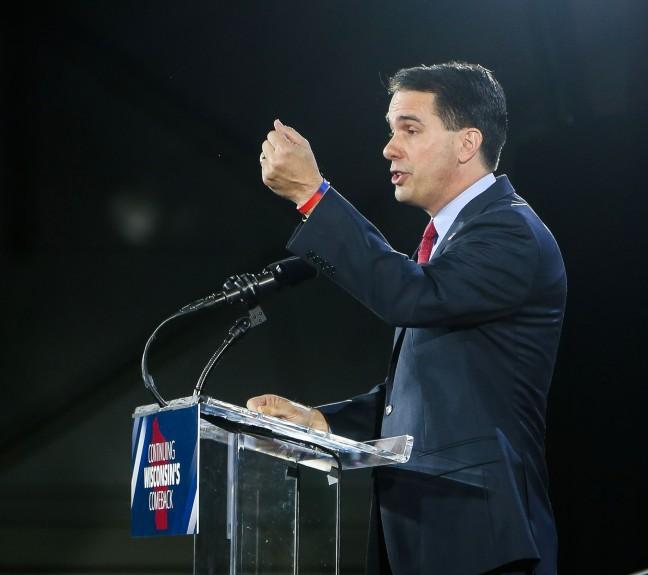Over a week after his reelection, the state is looking toward Gov. Scott Walker to see what actions he takes this term to address one of his campaign’s biggest issues: the job market.
Gov. Walker declined an invitation to speak at the University of Wisconsin System Board of Regents meeting Thursday, visiting several state technical colleges instead.
This decision has drawn a lot of attention in the shadow of a gubernatorial campaign focused on creating jobs and with a $95 million increased budget request from the Board of Regents pending. However, UW political science professor Barry Burden said any speculation into the meaning of Walker’s actions is “like reading tea leaves.”
“It’s an ambiguous message,” Burden said. “But I think it’s pretty clear from his speech on election night that he believes the technical college system ought to be emphasized.”
According to Burden, legislative leaders have been skeptical that the budget request would be accepted at a time when they’re trying to control the size of the state budget. However, he said Walker has given a more mixed response.
A denial of the budget increase would be consistent with his emphasis on the tech college system and filling manufacturing jobs in Wisconsin.
“[Walker] said during the campaign that the state doesn’t have a jobs problem; it has a work problem. So I think he believes that there are sufficient job openings, and the problem is that workers aren’t trained adequately to fill them,” Burden said.
Tech colleges would play a role in bridging this gap, Burden said.
However, according to Warren Stringer, owner of the Matenaer Corporation, a metal product supplier in West Bend, Wisconsin, the issue is deeper than needing more skilled workers — there is a need for experience coming into a lot of these jobs.
“[Improving tech schools] would help,” Stringer said. “But the skills that are required take some experience too. It’s tough to train somebody coming out of a tech school. While they have good training and it’s a good start, we need people with good experience too, and that just comes from on-the-job training.”
Walker’s policies suggest he’s interested in more than just filling vacant manufacturing jobs. He has made efforts to create jobs in this sector, most notably with the manufacturing and agriculture tax credit, which will reduce manufacturers’ state tax rate by 7.5 percent by 2016, according to the Wisconsin Department of Revenue’s website.
There is some skepticism as to whether this manufacturing-heavy approach is the most effective way to help job growth in Wisconsin.
According to Burden, a lot of the current growth in Wisconsin comes from companies spun off of UW research. These jobs have helped to counteract the “brain drain” of UW System graduates moving to other states to work. He said focusing on the UW System would be a good start to helping the state’s job problem.
“Those are not [jobs] that are being created at community college. They come from large research institutions, primarily UW-Madison.” Burden said.
A successful jobs plan would have to take this growth into account, Burden said.


